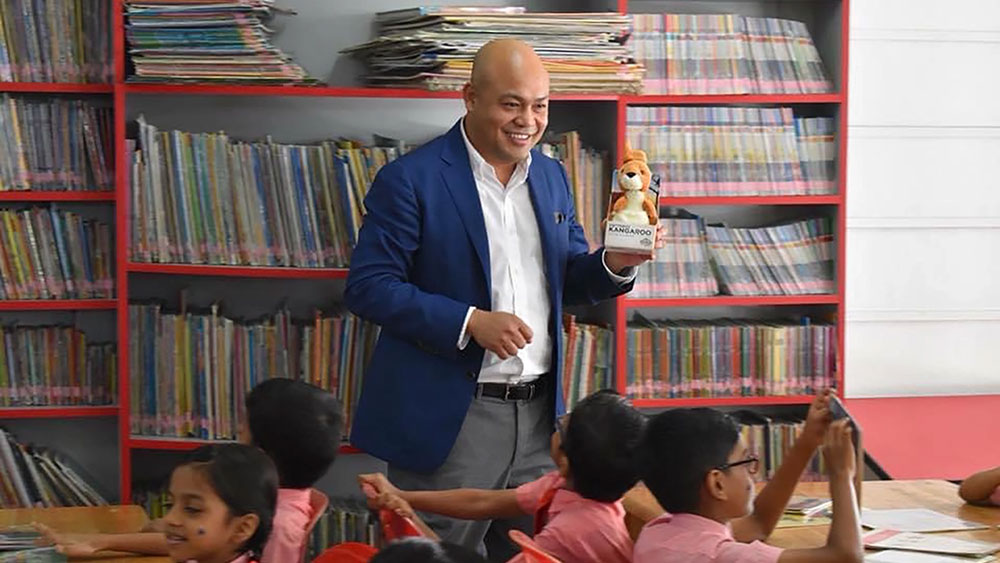
Nelson Salangsang is a seasoned international development practitioner with over 20 years of experience in leadership, global partnerships and transformational education.
In this interview, he discusses his early childhood, his path to education and how he found opportunities through Australian Government programs like Australia Awards.
Can you tell us about your early journey as a child in the Philippines?
At 8 years old I fell in love with education. Growing up, my 70-year-old neighbour would walk me and his cart full of wares 10km to school every day. We would return home exhausted. But even at that early age I knew it had the power to change my life.
I was raised by a single mother. We were migrants to Mindanao, a conflicted area in the Southern Philippines, living in absolute poverty; a rented 10 square metre room in a slum. On the day of my high school graduation, a day of celebration, we came home to a dark house. When I asked my mother about it, she told me she had a choice to buy me new shoes for my graduation or pay for our electricity. That was a real turning point in both our lives; I promised myself I would do everything I could to get us out of absolute poverty.
At 16 I went to the local university and one day was invited by the Chancellor to meet with the Australian guests, who included Senator Gareth Evans, then the Minister for Foreign Affairs. He was there promoting the predecessor to the Australia Awards program and encouraged me to apply. So, right before the deadline, I begged the registrar to give me my academic results early, and with no computer or typewriter (just my yellow notepad), I wrote my application. By God’s grace I secured the scholarship and became the youngest scholar supported by the Australian government at the time.
How did you shape your journey with education?
At ANU I purposefully took development studies and knew this was my opportunity to transform not just my life but that of my family and my community. My internship solidified my resolve to focus on transformational education. When I returned to the Philippines, I was employed at the Australian Embassy and became part of the Australian Trade Commission where I was liaising with the Asian Development Bank.
In Australia some years later I used my expertise to grow Queensland University of Technology’s International Projects portfolio from only 5 to over 350 programs in 18 years. Throughout this journey, I have worked in 25 countries, delivering transformational education programs to thousands of individuals, who’ve delivered real impact to every one of their communities.
How did the Australia Awards program shape your career?
Now, I am part of Tetra Tech’s scholarship practice, which manages transformational education programs within the Indo-Pacific through Australia Awards. There are a dwindling number of universities involved in international development these days, with research their (almost myopic) focus. But that’s short sighted because you cannot implement or contextualise even the best research on, say, climate change, without educated, empowered, connected leaders in these communities.
Now in my 25th year of international development work, I have a unique perspective on transformational education. Many people refer to it as ‘capacity building’ which assumes there is nothing there to start with—a very colonial view. Whereas ‘capacity development’ implies something important already exists, without that understanding the work we do will not be embedded and the partnerships we grow will not last. It’s an approach that demands humility and more listening than talking—a very non-colonial approach!
I’m a living example of how a single transformational education scholarship can reverberate for decades, not only throughout the life of the individual, their family and their local community, but also across the globe. My mother, who still lives in the Philippines, is so proud of what I’ve done. She instilled in me the value of working to make the lives of others better, which blesses your own life too.
